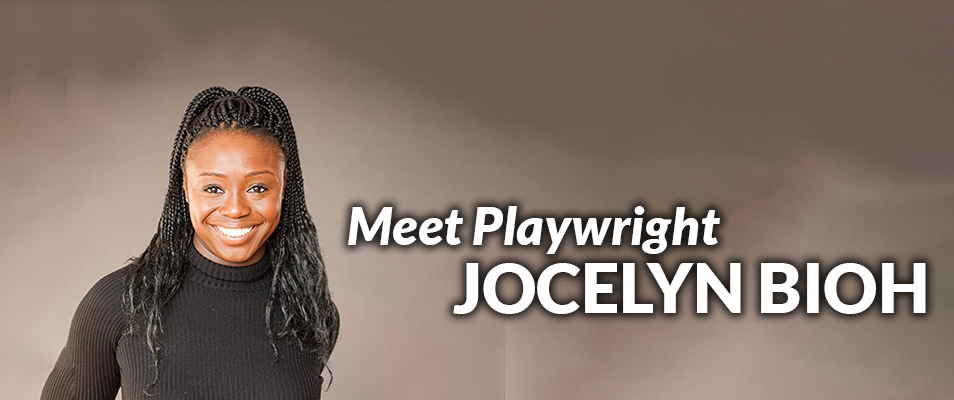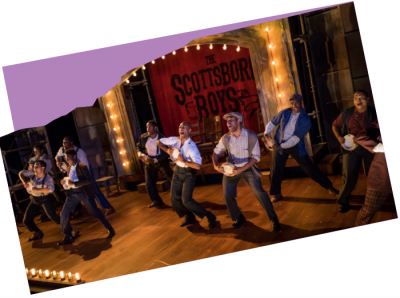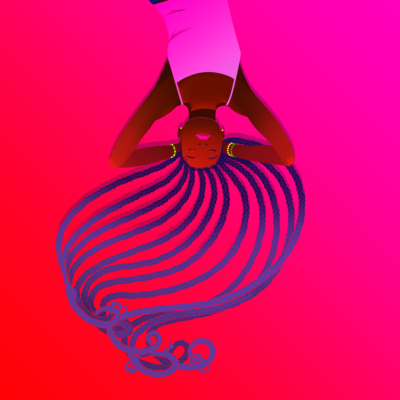Your donation sets the stage for a new season of Boston's most intimate, entertaining and provocative plays and musicals. Our shows make powerful connections with our audiences-- and they are only possible because of you.
Meet Jocelyn Bioh




Meet Jocelyn Bioh
With her success as the playwright of School Girls; Or, The African Mean Girls Play and a writer on the Netflix hit show Russian Doll, Jocelyn Bioh is quickly making a name as one of the nation’s up-and-coming voices. SpeakEasy Boston Project Coordinator Pascale Florestal caught up with Jocelyn in an e-interview to discuss the writers who influence her, her upcoming projects, and the experiences that inspired School Girls.
Don’t miss Jocelyn Bioh‘s visit to Boston with a special event in partnership with Hibernian Hall. Click here for more details!
Pascale Florestal: What sparked the inspiration for you to write the play?
Jocelyn Bioh: I always knew that I wanted to write about colorism, I just never knew how to write about it in a way that would feel like it would resonate with a universal audience. Then many years ago, I came across a story about an American born, bi-racial woman who had been crowned Miss Ghana and I became fascinated with the story (as it was quite a scandal in Ghana.) It felt so clear to me that the Miss Ghana pageant officials thought they would have a more competitive candidate in the Miss Universe competition if they had a lighter skinned woman representing our country and it devastated me. I couldn’t believe that Western ideas of beauty had infiltrated that deeply into African society. That story combined with my want to write about my experiences in boarding school came together and next thing I know, I had a draft of School Girls.
PF: School Girls focuses on the African experience in a comedic tone while tackling issues of colorism. Why did you think it was important for this story to be told that way?
JB: I am a comedic writer and actress so it is natural for me to lean on comedy as my mechanism for storytelling. I truly feel that comedy is just a funny way of being serious. I knew that audiences would be able to relate to the story and come to it with more understanding if they were having a good time. Colorism is already so complex and nuanced to those who have never experienced or even heard of it, so I wanted to shy away from making it feel like a lecture or boring.
PF: As the play takes place in 1986, how do you think it’s relates to the world we live in today?
JB: I have heard a lot of people tell me that they feel like the play is timeless and in a lot of ways, it is. I have my own personal obsession with the 80’s culture, fashion and music and that was mainly my reason for having the play take place at that time. Also, in 1986, it was perfectly plausible for the winner of a beauty pageant to become a bonafide star so Paulina’s ambitions are not at all far-fetched.
PF: What questions are you hoping the play will spark?
JB: I’m more concerned with what conversations the play will spark. I hope that the people who know and understand colorism will feel more free to discuss it and for those who will be introduced to it through this play, I hope they will see how they too may subconsciously participate in this type of racism and process/unpack those feelings.
PF: Who is your favorite character in School Girls and why?
JB: I don’t have a favorite character. They are all weirdly some extension of me so I love them all deeply–ha! But I am more proud of the work I did with Paulina as she is a complicated girl and is the avatar for someone we all went to high school with. Being able to step into her mind and have empathy for her was super important to me. It gave me peace about all of my middle and high school bullies.
PF: What do you want the audience to learn about the African experience after seeing School Girls?
JB: I want them to see that our experiences are the same! There is such an incredibly dangerous narrative that has been crafted about the entire continent of Africa. Many people think of it as a country, they are ignorant to how developed it is, and they certainly only affiliate it with stories of war, famine, AIDS, struggle and strife. Yes colonialism did quite a number on our beautiful continent and for some countries, it has/will take them many years to overcome that, but it is important to me as a 1st Generation Ghanaian-American that I use my voice to add to the conversation of how the diaspora is reflected.
PF: What kind of work do you gravitate to as an actor versus as a writer?
JB: As an artist, I tend to gravitate towards anything that is good and that will challenge me. I happen to write and act in a lot of comedies but I have been stretched in any project that I’ve done. I’m quite proud of that.
PF: You were one of the writers The New York Times commissioned to write a play about the world in 2024. Can you talk about that experience and your hopes for the future of American Theatre?
JB: Well, that was one of the most depressing plays I have ever written and it was only 10 minutes long–ha! But I was so thrilled to be asked to be a part of that incredible project because there is such a lack of understanding of the immigrant experience in America and the rhetoric that some of our elected officials say is absolutely terrifying. This is why I think that everyone should have a little theatre in their life because it truly helps people see the world from an alternate perspective and thus, I hope, incite change in their hearts and minds about their implicit and unfair biases. That will always be my hope for the future of American Theatre, but we’ve got such a long way to go.
PF: Who are the writers and artists that inspire you and your work?
JB: This is always a tough question to answer because I draw inspiration from a myriad of artists and work. From I Love Lucy, The Mary Tyler Moore Show, The Golden Girls, Fresh Prince of Bel-Air, Coming to America, Love Jones to Tarell Alvin McCraney, Danai Gurira, Lynn Nottage, Dominique Morisseau, Katori Hall, Neil Simon, Issa Rae, Tina Fey and Mindy Kaling. I love so many things and find the beauty, light and heart in all of it.
PF: What are upcoming projects you are excited to start?
JB: I am working on several new plays right now and a new musical. I would have to say that a lot of my time has been devoted to my musical titled GODDESS which is based on an African folklore tale about an African Goddess who finds that she is cursed. I’m thrilled at the opportunity to create a new and original musical about African culture for musical theatre. I also wrote on the second season of Spike Lee’s Netflix show She’s Gotta Have It which will start streaming on May 24th – I can’t wait for people to check that out (I wrote the 3rd episode!)
 Past Productions
Past Productions PRU PAYNE
PRU PAYNE ain't no mo'
ain't no mo' a man of no importance
a man of no importance JAJA’S AFRICAN HAIR BRAIDING
JAJA’S AFRICAN HAIR BRAIDING




